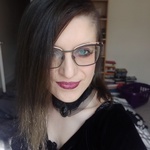Dr Jen Walklate, School of Social Science

- Overview
-
Museums and the Digital World is a new course (inaugural class 2019-2020) which focuses on the practical and philosophical relationship between museums and technology. The first version of the course, run on campus, involved a long form group project to develop digital interventions for the University of Aberdeen's Museum Service. This version of the group project was not assessed, and was intended as an opportunity for creative exploration. It was also intended as an 'authentic assessment' - to allow students to engage in the management and development of a project as they might do in a museum setting.
In the reviewed version of the course for the blended learning model of 2020-2021, the group project has become an assignment, and has been remodelled in a number of ways.
- Activity
-
In the reviewed course for 2020-2021, the group project is now 25% of the assessment, and culminates in a presentation authored and presented by the group. Each group is intended to be 2-3 people in size, and their task is to produce a proposal for a creative digital solution to enhance the digital offer at the University of Aberdeen's Museums and Special Collections Service. They are permitted to develop anything they wish, including but not limited to apps, social media plans, online exhibition proposals, VR and AR projects, and more. They work with the Museum Services and their strategic plans, to produce this proposal. They should be using ideas, concepts and skills developed on the course. The presentation is assessed against a rubric which includes the following criteria:
- Understanding of the UoA Museums Service context.
- Understanding of audiences at UoA.
- Knowledge of precedents in the museum sector.
- High quality presentation.
- Persuasiveness of argument.
Though it was not assessed, the group work in the original course also culminated in a presentation. The students presented some extremely creative ideas, including apps, Instagram strategies, and a game.
- Impact
-
The intention of the assessment is to offer an 'authentic' experience to the students. Group work is often difficult, but in museums group projects are both commonplace and essential. Particularly in the area of digitality, museums frequently require teams to co-ordinate and plan projects and funding proposals together in order to ensure that digital is not simply an 'add on' to a wider project, and integrated into the broader strategy of the museum. Successful digital work in museums also requires a variety of different kinds of expertise which are often diffused across different staff members. The project is intended to allow students to engage in this kind of work in a supported environment, as well as to deploy their knowledge gained on the course in a creative way with a potentially practical impact on the University Collections.
- Evaluation
-
I have two main strategies for evaluating my assessment and feedback practice; self reflection and student discussion. In the first strategy, I ensure that I keep an up to date teaching diary in which I reflect each week on the strengths and weaknesses of the course as it is currently running. This way, I am able to record reflections that I have in the moment and continue to work to improve my course, and my awareness of my weaknesses.
The second strategy, student discussion, involves consideration of the feedback forms students are required to submit, but also involves open discussion fora with the students - both in student staff committee and in other, course specific, focus groups.
- Dissemination
-
Alongside more standard forms of reporting and assessment, the School of Social Sciences is running fortnightly Online Teaching Cafes, where all colleagues are able to come together to discuss and evaluate their practice in a positive way. I will be discussing group work, and this project in particular, at those cafes.
I also hope to disseminate my practice through further networks, including a network for pedagogic research in museum studies that I and a colleague at another institution are incubating at present.
